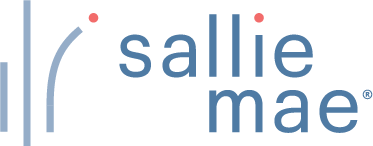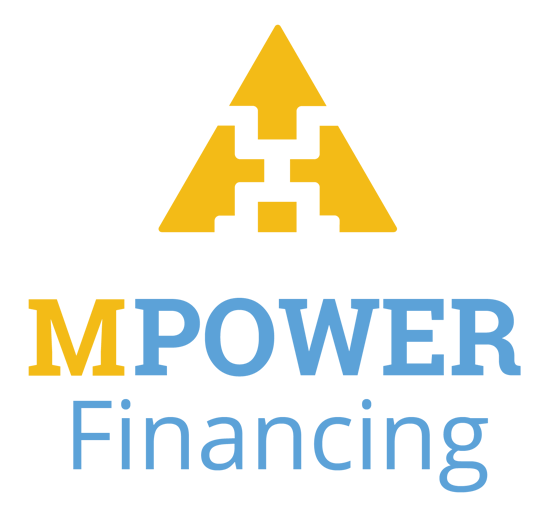NerdWallet’s Guide to Financial Aid Programs in Florida

Many or all of the products featured here are from our partners who compensate us. This influences which products we write about and where and how the product appears on a page. However, this does not influence our evaluations. Our opinions are our own. Here is a list of our partners and here's how we make money.
If you live in Florida — or are thinking of relocating — the Sunshine State has several prestigious colleges and universities, including Embry-Riddle Aeronautical University, the University of Florida and Rollins College.
Higher education is less expensive in Florida than in most other states. The state also operates several robust financial aid programs, such as the Bright Futures scholarship program, that can make college more affordable for residents.
Student loans from our partners

on Sallie Mae
Sallie Mae
4.5
NerdWallet rating
4.5
NerdWallet rating4.5% - 15.49%
Mid-600's
on Sallie Mae
on College Ave
College Ave
5.0
NerdWallet rating5.0
NerdWallet rating4.07% - 15.48%
Mid-600s
on College Ave
on Ascent
Ascent
5.0
NerdWallet rating5.0
NerdWallet rating4.09% - 15.66%
Low-Mid 600s
on Ascent
The cost of education in Florida
Florida’s education system includes 40 public colleges and universities. There are also at least 30 private, non-profit schools throughout the state.
Generally, a college education in Florida is cheaper than the national average. Here’s how much you can expect each year of your degree to cost at different types of institutions, based on 2020-21 average tuition rates as reported by the National Center for Education Statistics:
Public four-year, in-state: Nationally, the average cost of a public, in-state university was $21,337 per year. In Florida, the cost was $15,543 per year — a difference of almost $6,000.
Private non-profit: Private colleges and universities are usually more expensive than public schools. The average cost of a year at a private school in Florida was $28,860, about $4,500 less than the national average.
Community college: The average cost of attending a two-year school was $3,501 per year at the national level. In Florida, the average cost was $2,506 per year, nearly $1,000 less.
Financial aid options in Florida
To qualify for state-based financial aid, you must establish residency. For the purposes of in-state tuition rates and other state aid, you or your parents must live in Florida for at least 12 consecutive months before the first day of the term.
Currently, undocumented and Deferred Action for Childhood Arrivals (DACA) students can qualify for in-state tuition rates at Florida public colleges and universities if they meet the following criteria:
Attend a secondary school in Florida for at least three consecutive years before graduating.
Enroll in a Florida postsecondary institution within 24 months of graduating from high school.
Submit an official Florida high school transcript as evidence of attendance and completion.
However, the 2014 law that allowed those students to qualify for in-state tuition is facing challenges. Current Florida Governor Ron DeSantis has proposed repealing the measure, so this benefit may not be available in the future.
Laws, residency requirements and financial aid programs can change. Visit the Florida Student Scholarships and Grants Programs website for the most current details.
If you are a Florida resident, you may qualify for one or more of the following financial aid programs:
529 plans.
In-state tuition.
Grants.
Scholarships.
Student loan repayment assistance.
Florida 529 plans
529 plans are tools to save for a child’s future education. In Florida, there are two programs:
Prepaid tuition plan: Florida Prepaid College Plans allow you to purchase college credits for future use at today’s prices. The credits can be used in-state or out, and the child can attend public or private schools. The funds are available for up to 10 years after the child’s projected high school graduation date, and plans start at $45 per month. There’s also a $50 application fee.
529 college savings plan: The Florida 529 Savings Plan is an investment account you can use to save for a child’s education. You can choose from a range of investment options to grow your contributions tax-free as long as you use the money to pay for eligible education expenses.
While some states offer special benefits, such as state account contributions or tax credits, Florida does not provide the same incentives or benefits.
Florida in-state tuition
Florida participates in the Academic Common Market. This network allows resident students to attend school in other states and pay in-state tuition rates. Through the network, students can qualify for in-state tuition at eligible programs in the following states:
Alabama.
Arkansas.
Delaware.
Florida.
Georgia.
Kentucky.
Louisiana.
Maryland.
Mississippi.
Oklahoma.
South Carolina.
Tennessee.
Texas.
Virginia.
West Virginia.
Not all schools or programs qualify, so talk to your selected school’s financial aid office to find out if you’re eligible for in-state rates.
Florida grants
Grants, as a form of gift aid, don’t need to be repaid, and they’re typically awarded based on financial need. Florida has three state grant programs:
First Generation Matching Grant Program
The First Generation Matching Grant Program is for Florida undergraduate students with substantial financial need and whose parents did not earn a college degree. Award amounts vary by year and the needs of the student.
Florida Student Assistance Grant Program
Resident undergraduate students may qualify for the Florida Student Assistance Grant Program. The award amount varies by year, but the minimum is $200.
José Martí Scholarship Challenge Grant Fund
The José Martí Scholarship Challenge Grant Fund is a need-based grant for students of Hispanic origin with grade point averages of 3.0 or higher. Eligible students will receive up to $2,000 per academic year.
Florida scholarships
Students from Florida may qualify for one of nine scholarships.
Bright Futures Scholarship Program
Florida’s best-known and most valuable scholarship is the Bright Futures Scholarship Program. Through Bright Futures, students can qualify for an award for as much as 100% of college tuition and fees.
To qualify, students must be Florida residents, earn a Florida high school diploma or its equivalent, and maintain a GPA of 3.0 or higher in high school. Students must also complete volunteer service or paid work hours to qualify for the Bright Futures program.
Benacquisto Scholarship Program
The Benacquisto Scholarship Program is a merit-based award for high school graduates who achieved National Merit Scholar status. The award amount varies, but it can cover the total cost of attendance at participating schools, minus other financial aid.
Florida Farmworker Student Scholarship Program
The Florida Farmworker Student Scholarship Program is both merit-based and need-based. Each year, up to 50 eligible students can qualify for financial assistance that covers up to 100% of the credit hours required for degree or certificate programs. To qualify for the scholarship, students must be farmworkers or the children of farmworkers.
Mary McLeod Bethune Scholarship
As a merit- and need-based scholarship, the Mary McLeod Bethune Scholarship provides up to $3,000 in financial aid to academically strong students with financial need. To qualify, students must have a 3.0 GPA or higher and enroll at Bethune-Cookman University, Edward Waters College, Florida A&M University or Florida Memorial University.
Minority Teacher Education Scholars program
Administered by the Florida Fund for Minority Teachers, the Minority Teacher Education Scholars program is a performance-based scholarship for African American, Hispanic American, Asian American and Native American students. Eligible students can receive up to $4,000 per year in financial assistance.
Randolph Bracy Ocoee Scholarship Program
Students who are direct descendants of the victims of the Ocoee Election Day Riots of November 1920 or are current African American residents of Ocoee are eligible for the Randolph Bracy Ocoee Scholarship Program. Eligible students will receive up to $6,100 per year in financial aid.
Rosewood Family Scholarship
The Rosewood Massacre occurred in 1923. Students who are direct descendants of Rosewood families affected by those events can qualify for the Rosewood Family Scholarship. Qualifying students will receive up to $6,100.
Scholarships for Children and Spouses of Deceased or Disabled Veterans
This award is for the children or spouses of deceased or disabled military veterans who were Florida residents. Eligible students can receive funding for up to 110% of the required credit hours for an initial baccalaureate degree or certificate program.
William L. Boyd, IV Effective Access to Student Education Program
The William L. Boyd, IV Effective Access to Student Education Program is a scholarship for students attending a private, non-profit school in Florida. The student must be enrolled in a program other than theology or divinity, and award amounts vary by year.
Student loan repayment programs in Florida
If you have student loans and live and work in Florida, you may be eligible for help from the state in repaying your loans. Florida has programs for attorneys and health care workers who will repay a portion of your debt if you complete a service obligation in a high-need area. The following loan repayment assistance programs (LRAPs) are available:
Florida Bar Foundation
The Florida Bar Foundation designed its LRAP to encourage attorneys to work for legal aid organizations. Under the terms of the LRAP, eligible lawyers can receive up to $5,000 per calendar year to repay federal or private student loans.
Florida John R. Justice
Florida’s John R. Justice LRAP provides repayment benefits to state and federal public defenders and state prosecutors who commit to remaining as defenders or prosecutors for at least three years. Participants in the program can receive up to $10,000 in loan repayment assistance per year, up to a maximum of $60,000. This program will only repay federal student loans; borrowers with private student loans aren’t eligible.
Florida Reimbursement Assistance for Medical Education program
The goal of the FRAME program is to recruit and retain medical professionals to practice in underserved areas. Through the program, nurses, physicians and physician assistants can receive assistance with their student loans. Award amounts vary by profession, but eligible borrowers can receive up to $20,000 per year in student loan repayment benefits. Federal and private student loans can be repaid through FRAME.
Nursing Student Loan Forgiveness Program
The Nursing Student Loan Forgiveness Program provides up to $4,000 annually in loan forgiveness to nurses working full time at a designated site. Examples include public schools, state-operated medical and health care facilities, and county health departments.
Nurses can participate in the program for up to four years. The program will repay federal and private student loans.
How to apply for financial aid in Florida
Florida has several financial aid programs, including gift aid in the form of grants and scholarships. To ensure you get all of the aid you’re eligible for, follow these steps:
Fill out the FAFSA: Need-based programs will determine your financial need based on the information that you submit with the Free Application for Federal Student Aid (FAFSA). The FAFSA can take less than an hour to complete. Fill it out online at FAFSA.gov.
Look up deadlines: Although Florida’s FAFSA deadline is in mid-May, some scholarship or grant programs may have different deadlines and requirements. Review the application materials of each program carefully, and make a note of any deadlines.
Create an account with Florida’s Office of Student Financial Assistance: Some of Florida’s programs require you to have a student account with the Office of Student Financial Assistance. It’s free to create an account, and you can open one at FloridaStudentFinancialAidSG.org.
Fill out the Florida Financial Aid Application: Some grant and scholarship programs require the Florida Financial Aid Application as well as the FAFSA. You must have a student account with the Office of Student Financial Assistance. Once your account is created, you can access and fill out the application.
Apply for specific programs: Some programs, such as the Benacquisto Scholarship Program or the Minority Teacher Education Scholars program, require separate applications or additional materials. Review each program's eligibility requirements online so you can fulfill the application requirements.
On a similar note...
Powered by






